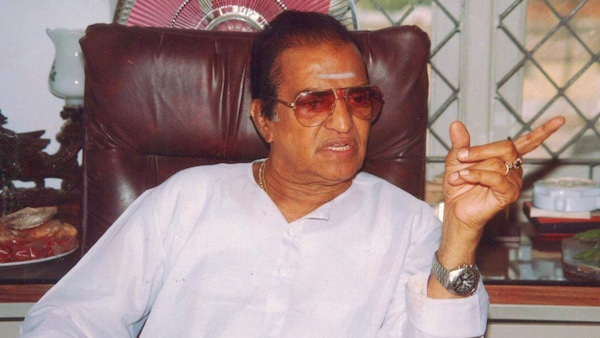100 Years of NTR: Once a reluctant politician, here's how NTR occupied the CM’s chair thrice
While he always stood up social causes in several phases of his career, NTR’s approach towards politics changed drastically in the 1970s

Last Updated: 03.21 PM, May 28, 2023
NTR, whose 100th birth anniversary falls today, was a man visibly frustrated with the system when he decided to leave for Madras in the late 1940s in the hope of a career in films. In his brief stint at a government office, he was livid with how bribery was the norm of the day and his idealistic approach to work earned him more foes than friends. A few weeks into the job, his colleagues convinced him that he was more suited to be an actor than as clerk in a government office.
While he fell for the bait and it eventually paid off, NTR was clearly disinterested from politics or bureaucracy in his early years in the industry. He felt deeply for the issues of the common man but his livelihood and family were more important than anything else. When he was still a contract employee at Vijaya Productions, NTR and his fraternity counterparts staged plays, organised events to raise money for those affected by the Rayalaseema famine in 1952.
However, in contrast, we don’t quite notice NTR’s contribution towards the establishment of the Telugu state - Andhra Pradesh - in the later part of the decade. Even while his co-actors or crew were discussing politics on sets, he reportedly chided them, ‘Don’t you have anything better to talk? When this industry is giving us respect, money, fame, why drown your feet into muddy waters and waste your time?’
While NTR enjoyed the patronage, he restricted his heroics to films and didn’t make any overt political statements in his public appearances later. However, in the 1970s, one could sense NTR’s conscious attempts to use his films for political commentary. He took several digs at the Congress through Tatamma Kala, Yama Gola. The former, which he’d written and directed, faced a temporary ban as well.
Yet, during a shoot near a scenic backdrop at Rajahmundry in the late 1970s, he’s believed to have told a journalist, ‘When I can forget all my worries and lose myself in nature, what else do I need from life?’ Even as he said his, he did his bit to contribute to the welfare fund for soldiers during the Indo-Pakistan 1971 war and took to the streets to raise money for the Diviseema flood victims later.
Producer Ashwini Dutt, who made films like Eduruleni Manishi with the star in the 1970s validates this attitude change. The veteran informs that NTR was concerned about the plight of the common man in all the locations where he would shoot his films, actively engaging in discussions about social issues with Jaggaiah, Dasari Narayana Rao. The transformation was particularly evident during the shoot of Sardar Paparayudu, where he’d informed journos about his intentions to serve the people after 60.
While NTR remained tightlipped about his intentions later, it was more or less clear that the star had made up his mind to enter politics. An insecure Congress deliberately tried to silence him with provocative statements, CBI raids but it didn’t deter the star. NTR even approached ANR, Krishna to join his party but both the actors politely denied the offers. NTR’s fan clubs across the state welcomed his decision with great joy.
With the elections fast approaching, the star was keen to wrap up his film commitments quickly. With Congress gradually becoming notorious among the public for its political instability, NTR’s political entry was timed perfectly. The support from the Eenadu group, owned by Ramoji Rao, the extensive coverage of NTR’s campaign in addition to drafting his public speeches, was the icing on the cake.
The popularity of films during the political campaign like Chandasasanudu, Bobbili Puli, which had direct references to rival political parties, NTR’s ability to captivate the masses with his emotional speeches in chaste Telugu came in handy. Choosing several educated candidates for MLA seats coupled with smart political strategies, TDP come to power within 9 months of its commencement with a striking majority in 1983 and ousted Congress.
NTR’s love for sensationalism caused him trouble in all his three stints as a CM, where was constantly bothered by infighting within his party, which faced charges related to corruption, casteism. Yet, as a politician, his heart batted for the common man. At times, one felt he wasn’t well-suited to be an administrator. He returned to films briefly before his final stint as a CM - director K Raghavendra Rao gave him a deserving swansong with Major Chandrakanth.

